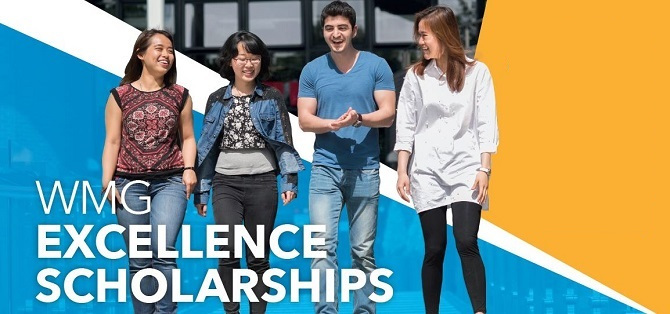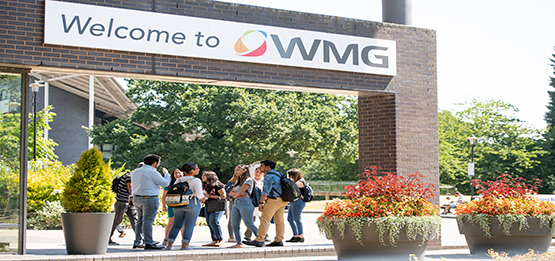Smart, Connected and Autonomous Vehicles (MSc) (2022 Entry)
About this taught graduate course
Course overview
With intelligent vehicles on the horizon of technical advancements, the automotive industry is facing a developmental challenge. How do we develop a robust technical infrastructure to support the anticipated explosive growth in smart vehicular functions, communications systems, and driverless cars? This demands a comprehensive understanding of the technology and a bottom-up approach ensuring robustness and dependability of Electronics, Communications and Control Systems.
Through this MSc, we aim to address the knowledge gap in the areas of machine learning, automated control strategies, connectivity, and communication infrastructure, cyber-security protocols, emerging automotive networks and robust automotive embedded systems within the context of smart, connected and autonomous vehicles. This programme has extensive industrial support with the Industry Advisory Board consisting of Jaguar Land Rover (JLR) and RDM among others.
This course is pending accreditation by the Institution of Engineering and Technology (IET) on behalf of the Engineering Council as meeting the requirements for Further Learning for registration as a Chartered Engineer. Candidates must hold a CEng accredited BEng/BSc (Hons) undergraduate first degree to comply with full CEng registration requirements.
General entry requirements
Minimum requirements
2:i undergraduate degree (or equivalent) in STEM subjects, particularly Electronics, Electrical Engineering, Control Systems, Computer Science, Communications, Physics, or Mathematics.
Candidates with a UK 2:ii (or equivalent) may be accepted upon demonstration of relevant professional experience.
English language requirements
You can find out more about our English language requirements. This course requires the following:
- Band A
- IELTS overall score of 6.5, minimum component scores not below 6.0
International qualifications
We welcome applications from students with other internationally recognised qualifications.
For more information, please visit the international entry requirements page.
Additional requirements
Candidates with professional experience should include their CV with their application.
Core modules
- Fundamentals of Automotive Research, Development, and Management
- Automotive Sensors and Sensor Fusion
- Robust Automotive Embedded Systems
- Networks and Communications for the Connected Car
- Machine Intelligence and Data Science
- Human-Technology Interaction
Optional modules
One elective module should be selected from the following list to allow you to gain further specialist understanding:
- Fundamentals of Electrification
- Programming and Fundamental Algorithms for Scientists and Engineers
- Modelling and Simulation of Systems
- Systems Engineering and Functional Safety
Read the module descriptions for this course on WMG's website.
Teaching
This course has two components – taught modules account for two thirds of your time and effort and your research project accounts for one third.
For the taught component, we blend lectures with workshops, practical exercises, demonstrations, case studies, problem classes, syndicate exercises, and a review. Most modules are delivered intensively over one full week or two half weeks, with the ‘Fundamentals of Automotive Research, Development, and Management (30 CAT points)’ being a longer introductory module.
Our module leaders have extensive industry experience. Guest speakers from industry also contribute regularly, bringing real-world insight into your learning experience.
Class sizes
Overall this course can accommodate up to 48 students, divided into two groups of 24 students for most modules.
Typical contact hours
Our courses are modular in structure, with modules generally being taught in intensive one-week blocks from Monday to Friday, 9.00am - 6.00pm. Some modules will be taught over two half weeks or more, and occasionally you may be required to attend weekend sessions.
In addition to the taught component, you will have online pre-module preparation, and a substantial Post Module Assignment (PMA) following each module.
Each module accounts for 150 hours of learning time, divided between pre-work, in-module time, and post module assessment.
Assessment
At the end of each module, you will be given a Post Module Assignment (PMA) based on the learning objectives of that module. This is a piece of assessed written work which should take around 110 hours to complete. Many modules also have some in-module assessed work.
For the research component, each student undertakes a major individual project, which will develop your research and analytical skills and enable you to specialise. This project accounts for 33% of your overall credits and is submitted in the form of a dissertation of approximately 20,000 words, which may be followed by an oral examination or viva at the end of the year.
Leveraging the close partnerships that WMG has with key organisations within the automotive supply chain, it is envisaged that your project will have an industrial sponsor and be closely aligned with overcoming a real-world problem in the areas of vehicle electrification and sustainability. Many of the projects will feed directly into larger research programmes and will require you to liaise directly with senior academics, researchers, and industry partners.
Reading lists
Most departments have reading lists available through Warwick Library. If you would like to view reading lists for the current cohort of students you can visit our Warwick Library web page.
Your timetable
Your personalised timetable will be complete when you are registered for all modules, compulsory and optional, and you have been allocated to your lectures, seminars and other small group classes. Your compulsory modules will be registered for you and you will be able to choose your optional modules when you join us.
Your career
Graduates from the MSc in Smart, Connected and Autonomous Vehicles will understand a myriad of factors contributing towards the performance and dependability of connected and autonomous vehicles and will be well placed to continue professional work within R&D.
Helping you find the right career
Our department has a dedicated professionally qualified Senior Careers Consultant offering impartial advice and guidance together with workshops and events throughout the year. Previous examples of workshops and events include:
- Warwick careers fairs throughout the year
- WMG Future Fest
- Options in Engineering sector event
- Careers for experienced hires
- Careers in Cyber Security
- Careers in healthcare
- Careers in project management
WMG at Warwick
Having forged strong links with global companies through 42 years of collaborative research and development, we really understand the global market you’ll be operating in, and have designed our programmes to match.
Find out more about us on our website
Our courses
- Cyber Security Engineering (MSc)
- Cyber Security Management (MSc)
- e-Business Management (MSc)
- Engineering Business Management (MSc)
- Healthcare Operational Management (MSc)
- Innovation and Entrepreneurship (MSc)
- Intelligent Manufacturing Systems (MSc)
- International Trade, Strategy and Operations (MSc)
- Management for Business Excellence (MSc)
- Programme and Project Management (MSc)
- Service Management and Design (MSc)
- Smart, Connected and Autonomous Vehicles (MSc)
- Supply Chain and Logistics Management (MSc)
- Sustainable Automotive Electrification (MSc)
Our Postgraduate Research degrees
- Business Transformation (MSc by Research)
- Engineering (MPhil/PhD)
- Engineering Doctorate (EngD)
- MSc by Research (WMG) (MSc)
Visiting WMG
There are a number of different ways to visit the University of Warwick throughout the year. We host bespoke PG visits, where you can talk directly with your chosen department and explore our campus through a personalised tour. WMG also organises events for prospective students including a weekly Live Chat so you can connect directly with the department to speak with staff and students from WMG. For more about university wide open days and tours, visit our Postgraduate Visits page.
Scholarships and bursaries

Scholarships and financial support
Find out about the different funding routes available, including; postgraduate loans, scholarships, fee awards and academic department bursaries.

WMG funding opportunities
WMG will be awarding over £1million in scholarships and bursaries to students commencing study on our full-time MSc programmes

Living costs
Find out more about the cost of living as a postgraduate student at the University of Warwick.

Find out how to apply to us, ask your questions, and find out more.

Taught course applications
Here is our checklist on how to apply for taught postgraduate courses at Warwick.

Application advice from WMG
Please see the WMG department web pages for specific application advice and information.

After you’ve applied
Find out how we process your application.

Applicant Portal
Track your application and update your details.

Admissions statement
See Warwick’s postgraduate admissions policy.

Join a live chat
Ask questions and engage with Warwick.
Postgraduate Open Day
Our Postgraduate Virtual Open Day will help you find out more about your course of interest, as well as general topics like applying to Warwick, accommodation, careers and funding.Postgraduate fairs
Throughout the year we attend exhibitions and fairs online and in the UK. These events give you the chance to learn about our Master's and PhD study routes, and the wider context of postgraduate study.
Live chats
Every week, you can connect directly with representatives from Warwick, who will be answering your questions on applying to and studying postgraduate studies at Warwick.
Departmental events
Some academic departments hold events for specific postgraduate programmes, these are fantastic opportunities to learn more about Warwick and your chosen department and course.
Connect with us
Want to hear more about postgraduate study at Warwick? Register your interest and find out more.


